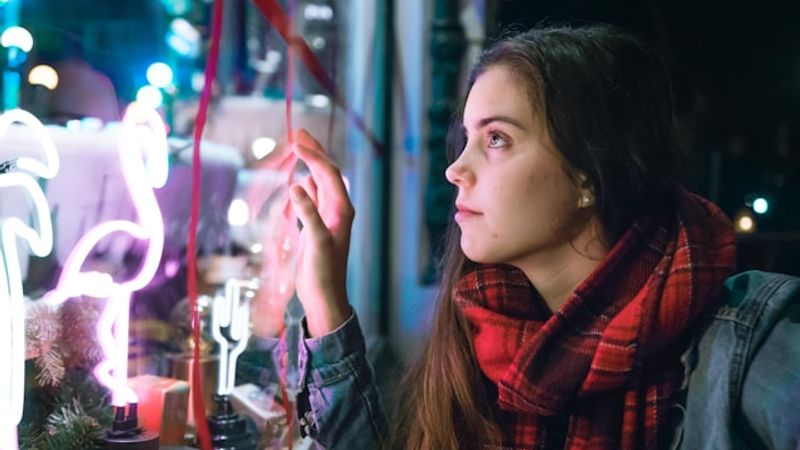Why is TikTok So Bad? The Hidden Dangers of the Viral Video App
TikTok, the popular short-form video app, has taken the world by storm. With over 1 billion active users worldwide, it has become a cultural phenomenon, especially among Gen Z. However, as the app’s popularity has skyrocketed, so too have the concerns surrounding its potential risks and downsides. In this article, we’ll delve into the reasons why TikTok may not be as harmless as it seems.
Article Summary
- TikTok’s addictive nature and its impact on mental health, particularly among young users.
- The platform’s data privacy issues and the concerning connections to the Chinese government.
- The spread of misinformation, harmful challenges, and the app’s influence on user behavior.
Why is TikTok So Bad? The Addictive Nature of the App
TikTok has been designed to be highly addictive, with its endless feed of short, engaging videos and personalized algorithm that keeps users scrolling endlessly. Studies have shown that the app’s use is linked to increased anxiety, depression, and decreased productivity, particularly among young people. The constant stream of content, coupled with the fear of missing out, can lead to unhealthy levels of screen time and a negative impact on mental well-being.
Why is TikTok So Bad? Privacy Concerns and Chinese Government Ties
One of the most concerning aspects of TikTok is the app’s data privacy issues and its connections to the Chinese government. TikTok is owned by the Chinese company ByteDance, and there are growing concerns that the app may be used to collect user data and potentially share it with the Chinese government. This raises significant privacy and security concerns, as the Chinese government has a history of surveillance and censorship.
Why is TikTok So Bad? The Spread of Misinformation and Harmful Challenges
TikTok has become a breeding ground for the spread of misinformation, with users often sharing false or misleading information as part of viral trends and challenges. These challenges can also be dangerous, with some leading to physical harm or even death. For example, the “blackout challenge,” which encouraged users to choke themselves until they passed out, resulted in the deaths of several children.
Why is TikTok So Bad? The Influence on User Behavior and Creativity
TikTok’s algorithmically-driven content curation has been criticized for its ability to shape user behavior and creativity. The app’s “For You” page, which displays a personalized feed of videos, has been known to push content that reinforces certain biases or encourages harmful behaviors. This can lead to the normalization of unhealthy trends and the stifling of genuine creativity, as users may feel pressure to conform to popular styles or challenges to gain attention.
Why is TikTok So Bad? The Impact on Mental Health and Body Image
The constant barrage of curated, often idealized content on TikTok can have a significant impact on user’s mental health and body image, particularly among young users. The app has been linked to increased rates of anxiety, depression, and body dysmorphia, as users compare themselves to the filtered, perfectly-staged content they see on their feeds.
Why is TikTok So Bad? The Lack of Effective Moderation and Regulation
Despite the numerous concerns surrounding TikTok, the platform has struggled to effectively moderate its content and enforce its own guidelines. The sheer volume of content being uploaded daily makes it challenging for the app’s moderators to keep up, leading to the proliferation of harmful, unethical, and even illegal content. Additionally, the lack of robust regulation and oversight of social media platforms like TikTok has allowed these issues to persist without meaningful consequences.
Writer’s Note
As a writer who is passionate about the e-commerce industry and the impact of emerging technologies, I have been closely following the rise of TikTok and the growing concerns surrounding the platform. While it’s undeniable that TikTok has become a powerful marketing tool for businesses and a source of entertainment for millions, the potential risks and drawbacks of the app cannot be ignored.
Throughout my research, I’ve been struck by the alarming data and user testimonials that highlight the app’s addictive nature, its threat to mental health, and the troubling ties to the Chinese government. The fact that TikTok has been linked to the spread of misinformation, dangerous challenges, and the normalization of harmful behaviors is particularly concerning.
As an e-commerce enthusiast, I’m also troubled by the way TikTok’s algorithm and content curation can shape consumer behavior and creativity. The platform’s ability to influence purchasing decisions and stifle genuine innovation is a significant concern for the future of the industry.
Ultimately, while TikTok may continue to dominate the social media landscape, I believe it’s crucial for users, businesses, and policymakers to approach the platform with a critical eye and a deep understanding of its potential risks. By staying informed and advocating for greater regulation and oversight, we can work towards a more responsible and ethical social media ecosystem that prioritizes user well-being and the integrity of the e-commerce industry.

About Jessie Rei
I'm Jessie Rei, the mind behind Shewillbe.nyc. As a Tech Journalist, Author, and PR Campaign Manager residing in the heart of NYC, my mission is to demystify the tech world for you. With a passion for AI and emerging technologies, I bring a wealth of knowledge and a unique perspective to the table, aiming to make technology accessible and understandable for everyone. It's a pleasure to connect with you through my work.


